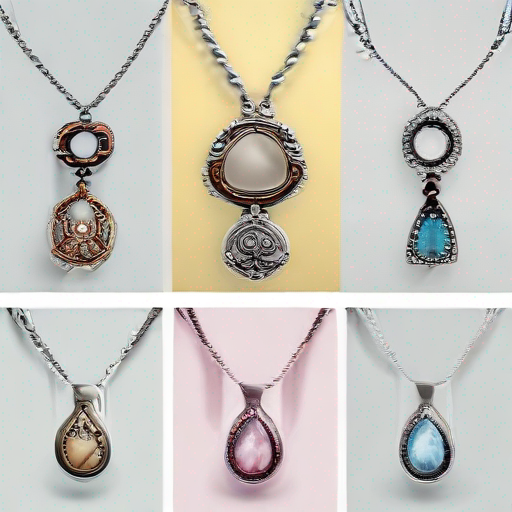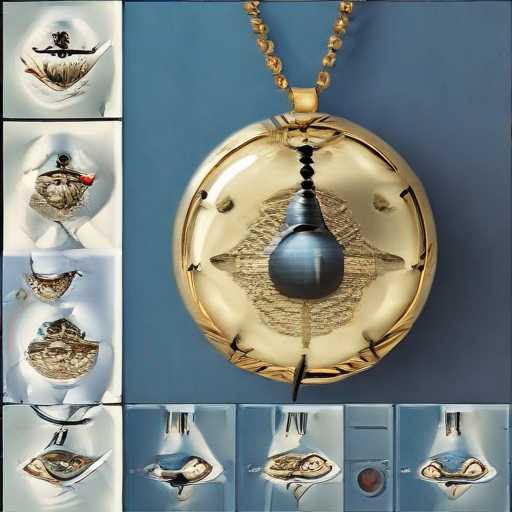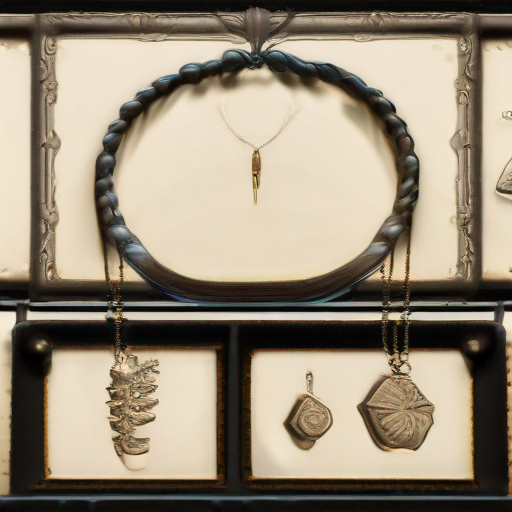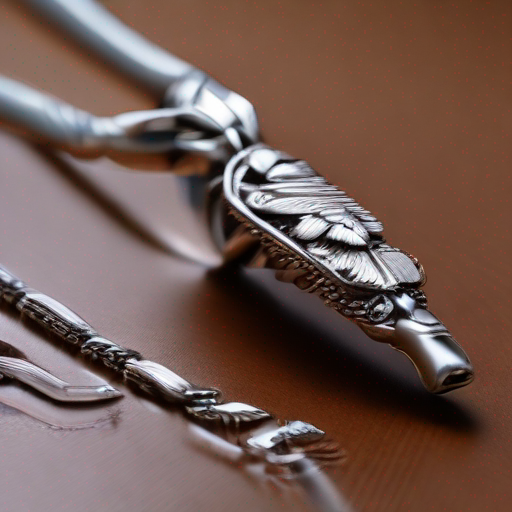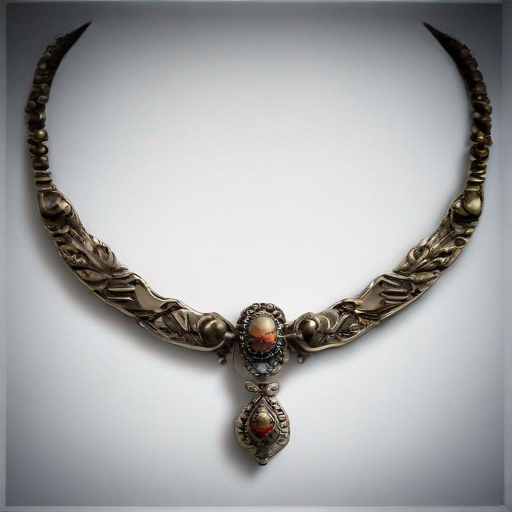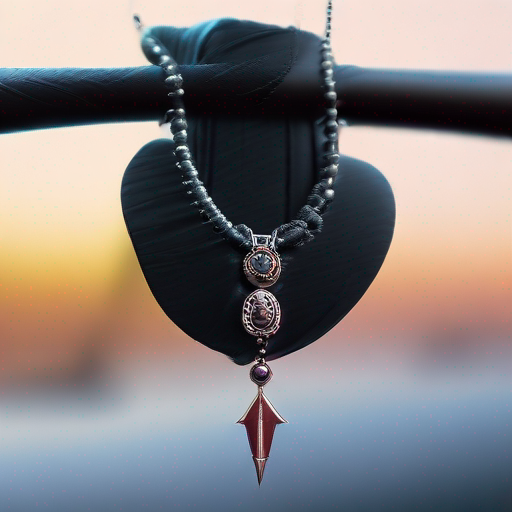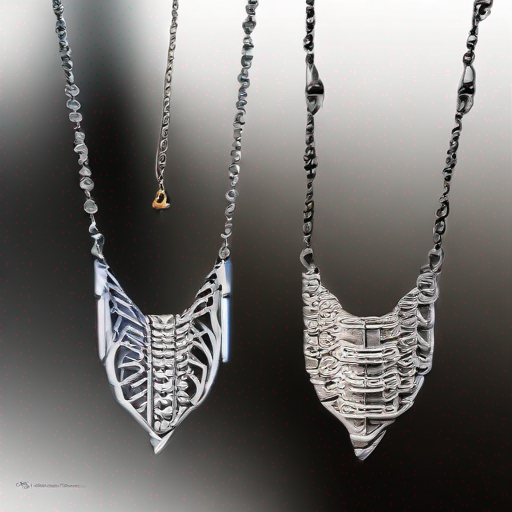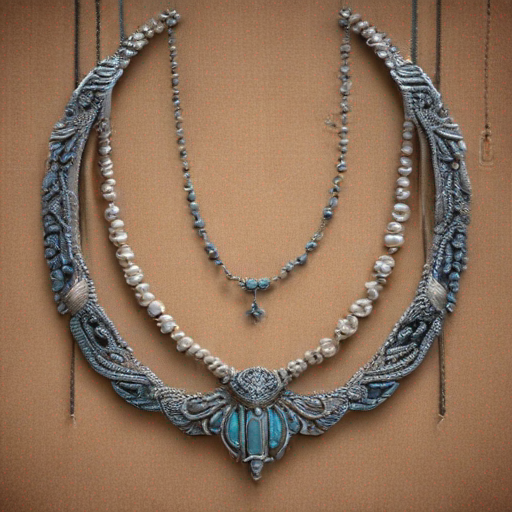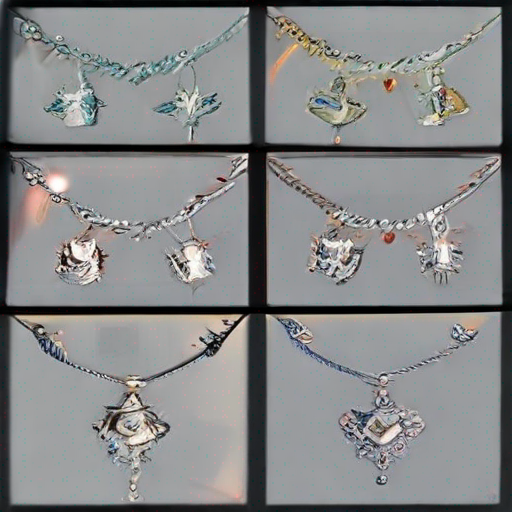
Necklaces That Don't Rust: Timeless Beauty and Durability in Jewelry Choices
When it comes to choosing a necklace, many of us prioritize timeless beauty and durability. We want our jewelry to be able to withstand the test of time, not to mention the occasional accidental scratch or spill. But what if we told you that there are necklaces out there that don't rust? Yes, you read that right – necklaces that are resistant to corrosion and can maintain their stunning appearance for years to come.
In this article, we'll delve into the world of non-rusting necklaces, exploring the materials, benefits, and drawbacks of these stylish yet durable pieces. Whether you're a jewelry enthusiast or simply looking for a long-lasting accessory, read on to discover why necklaces that don't rust are worth considering.
What Causes Rust?
Before we dive into the wonderful world of non-rusting necklaces, let's take a brief look at what causes rust in the first place. Rust is a type of corrosion that occurs when metal comes into contact with oxygen and moisture. This reaction can be accelerated by factors such as humidity, saltwater exposure, or even certain chemicals.
In the context of jewelry, rust can lead to unsightly discoloration, weakening of the metal, and ultimately, damage to the piece. But fear not, dear readers! There are materials that naturally resist corrosion, making them perfect for creating necklaces that don't rust.
Materials That Don't Rust
So, what are some of these incredible materials that can withstand the elements without compromising their beauty? Here are a few examples:
- Titanium: This strong and lightweight metal is known for its exceptional durability. When used in jewelry-making, titanium forms a thin layer of oxide when exposed to air, which helps protect it from further corrosion.
- Stainless Steel: As its name suggests, stainless steel is remarkably resistant to rust and other corrosive substances. This makes it an excellent choice for creating necklaces that can withstand daily wear and tear.
- Ceramic: Ceramic materials are often used in jewelry-making due to their natural resistance to corrosion and scratches. They come in a wide range of colors and finishes, offering endless design possibilities.
- Acrylic: Acrylic is a popular material for jewelry due to its lightweight, flexible nature. It's also extremely resistant to rust and corrosion, making it an excellent choice for necklaces that don't rust.
Benefits of Necklaces That Don't Rust
So, why should you consider investing in a necklace that doesn't rust? Here are just a few benefits:
- Durability: As mentioned earlier, non-rusting materials can withstand the elements without compromising their appearance. This means your jewelry will remain looking stunning for years to come.
- Low Maintenance: Without the need for frequent cleaning or polishing, necklaces that don't rust require minimal upkeep. This is especially convenient for those with busy lifestyles.
- Cost-Effective: While higher-quality materials may initially be more expensive, non-rusting necklaces can actually save you money in the long run by reducing the need for repairs and replacements.
Drawbacks of Necklaces That Don't Rust
While there are many benefits to choosing a necklace that doesn't rust, there are also some drawbacks to consider:
- Appearance: While non-rusting materials can be stunning, they may not have the same luxurious feel or appearance as more traditional jewelry.
- Limited Options: Depending on your personal style and preferences, you may find that necklaces made from non-rusting materials don't offer the same level of customization or design variety.
- Price: While non-rusting materials can be cost-effective in the long run, they may initially be more expensive than traditional jewelry.
Table: Comparison of Non-Rusting Materials
To help make your decision easier, we've created a table comparing some of the most popular non-rusting materials:
| Material | Durability | Maintenance | Cost |
|---|---|---|---|
| Titanium | Excellent | Low | High |
| Stainless Steel | Excellent | Low | Medium-High |
| Ceramic | Good | Medium | Medium |
| Acrylic | Very Good | Low | Low |
Conclusion
Necklaces that don't rust offer a unique combination of durability, low maintenance, and cost-effectiveness. By choosing materials like titanium, stainless steel, ceramic, or acrylic, you can enjoy stunning jewelry that will withstand the test of time.
At Rather Pretty, we understand the importance of finding jewelry that meets your needs and preferences. Whether you're looking for a statement piece or a more understated accessory, our expert team is here to guide you through the world of non-rusting necklaces and help you find the perfect fit.
Key Takeaways
- Non-rusting materials like titanium, stainless steel, ceramic, and acrylic offer durability and low maintenance.
- Consider factors like appearance, customization options, and price when choosing a necklace that doesn't rust.
- Rather Pretty is your go-to destination for expert guidance on non-rusting necklaces and more.

